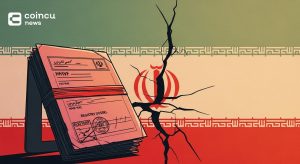Decentralized governance, also known as distributed governance, is a fundamental concept in the world of blockchain technology. It refers to the decision-making processes and systems used to govern and manage blockchain networks, platforms, and applications. In a decentralized governance model, power and control are distributed among the network participants, instead of being concentrated in a central authority.
Blockchain networks are designed to be decentralized, meaning that no single entity has complete control over the system. Instead, decisions are made collectively by the participants, often through voting mechanisms or consensus algorithms. Decentralized governance ensures transparency, fairness, and inclusivity in the decision-making process, as every participant has a voice and can contribute to shaping the future of the network.
There are two primary approaches to blockchain governance: on-chain governance and off-chain governance.
What is On-Chain Governance?
On-chain governance is a governance model that is directly integrated into the blockchain protocol itself. It enables network participants to propose and vote on changes to the protocol using the native currency or tokens of the blockchain network.
One example of on-chain governance is the Delegated Proof of Stake (DPoS) consensus mechanism, used by blockchain platforms like EOS and TRON. In DPoS, token holders vote for “delegates” who are responsible for validating transactions and making decisions on behalf of the network.
Another example is Decentralized Autonomous Organizations (DAOs), which are organizations that operate entirely on the blockchain, with governance decisions made through voting by token holders. DAOs enable participants to have direct control over the organization’s funds and operations.
What is Off-Chain Governance?
Off-chain governance refers to the decision-making process that occurs outside of the blockchain. It involves discussions, debates, and consensus-building among network participants in various forums, such as online platforms or in-person meetings.
One popular form of off-chain governance is the use of online forums or social media platforms, where participants can propose ideas, discuss them, and gather community feedback before implementing changes. This approach allows for more flexibility and inclusivity, as not all participants may have the technical expertise to actively participate in on-chain governance.
Additionally, some blockchain projects employ off-chain governance through a foundation or governing body. This entity acts as a central coordinating body that makes decisions on behalf of the network, taking into account the input and feedback from the community.
What are the benefits of Decentralized Governance?
Decentralized governance offers several key benefits:
Transparency: With decentralized governance, decisions are made openly and transparently. The entire decision-making process, including proposals and voting results, is usually recorded on the blockchain and can be audited by anyone.
Security and Robustness: By distributing power among participants, decentralized governance reduces the risk of single points of failure and makes the network more resistant to attacks. This ensures the security and robustness of the blockchain system.
Inclusivity and Fairness: Decentralized governance allows all participants to have a voice and influence over the network’s future. It ensures that decisions are made collectively and fairly, without giving excessive power to a few individuals or entities.
Flexibility and Adaptability: With decentralized governance, the network can evolve and adapt to changing circumstances more effectively. Proposals can be made, discussed, and implemented quickly, allowing for rapid innovation and improvement.
What are the challenges and considerations?
While decentralized governance offers numerous benefits, it also poses challenges and considerations:
Coordination and Decision-Making: In decentralized networks, reaching a consensus and making decisions can be complex and time-consuming. Different stakeholders may have conflicting interests, leading to disagreements and delays in implementing changes.
Sybil Attacks and Governance Attacks: Decentralized governance relies on the assumption that participants act in the best interests of the network. However, malicious actors can attempt to manipulate the governance process by creating multiple identities (Sybil attacks) or colluding to control the decision-making (governance attacks).
Regulatory Compliance: Decentralized governance models may face regulatory challenges, as they operate without a central authority or entity responsible for compliance. This can create uncertainty and legal hurdles, particularly in highly regulated industries.
Accountability and Liability: Decentralized governance may raise questions about accountability and liability. Since decisions are made collectively, it can be challenging to attribute responsibility for specific outcomes or actions.
What is the conclusion?
Decentralized governance is a key pillar of blockchain technology, enabling participants to collectively govern and shape the future of blockchain networks. It offers transparency, security, inclusivity, and adaptability, transforming traditional hierarchical governance models.
While there are challenges and considerations associated with decentralized governance, ongoing research and development efforts are focused on addressing these issues. As blockchain technology continues to evolve, decentralized governance models are expected to become more sophisticated, enabling even greater participation and innovation.














